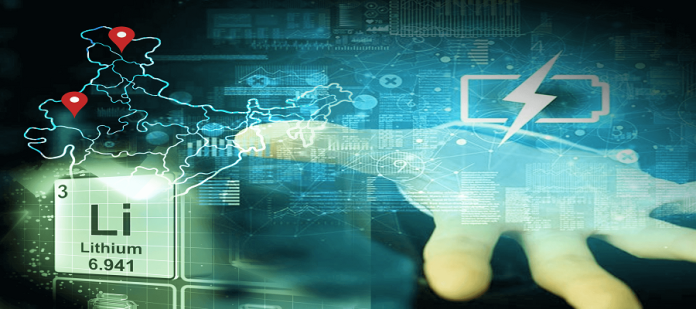Amidst Rapid Economic Growth, India Pursues Energy Transition Away from Fossil Fuels India is currently undergoing a substantial surge in energy demand due to its rapid economic expansion. This surge has prompted the need for an energy transition away from traditional fossil fuels. This transition is pivotal for accommodating the escalating energy requirements while sustaining ecological balance.
Lithium-Ion Batteries: Cornerstone of India’s Energy Transition In the pursuit of this energy shift, lithium-ion batteries have emerged as a pivotal component. These batteries serve as a crucial medium for energy storage, offering cost-effectiveness, versatility, and reliability. Their adaptability makes them the preferred choice for meeting the burgeoning demands of both electric mobility and renewable energy storage systems.
India’s Strategic Leveraging of Lithium-Ion Battery Storage India is taking significant strides to meet its greenhouse gas mitigation targets through the strategic utilization of lithium-ion battery storage. By tapping into advancements in lithium-ion battery technology and recycling methodologies, the country aims to augment its energy storage capacities and optimize the utilization of renewable energy sources.
Reducing Reliance on Lithium Imports and Enhancing Domestic Production Recognizing the critical importance of lithium as a fundamental raw material for electric vehicle (EV) manufacturing, India aims to curtail its dependence on imports by bolstering domestic production. The Ministry of Heavy Industries has recently introduced the Production Linked Incentive (PLI) Scheme for Advanced Chemistry Cells (ACCs), earmarking an investment of Rs. 18,100 Crore over a span of five years. The objective is to establish a competitive ACC battery manufacturing capacity of 50 GWh, coupled with 5 GWh of specialized ACC technologies.
Initiatives to Boost Electric Vehicle Manufacturing The Indian Government has implemented two comprehensive schemes to propel the production of EVs in the nation, particularly in the public transportation sector.
- FAME India (Faster Adoption and Manufacturing of Hybrid and Electric Vehicles in India) Phase-II: This initiative offers incentives to EV buyers through upfront price reductions. Its scope has been extended until March 2024, further incentivizing the adoption of EVs.
- Production Linked Incentive (PLI) Scheme for Automotive Sector: Another initiative, this scheme is designed to invigorate the automotive sector by providing benefits to buyers. With a budget of Rs. 25,938 crore, it encompasses electric vehicles in its coverage.
Environmental Responsibility: Battery Waste Management Rules In alignment with its commitment to environmental sustainability, the Government of India has introduced the Battery Waste Management Rules, in 2022. These regulations delineate a framework for the responsible management of waste batteries, including those from EVs. Producers are mandated to adhere to an extended producer responsibility framework, ensuring the recycling or refurbishment of waste batteries within specified timelines. The regulations also stipulate minimum material recovery targets for recyclers.
Minister of State for Heavy Industries, Shri Krishan Pal Gurjar, shared these crucial insights through a written response to the Lok Sabha.









